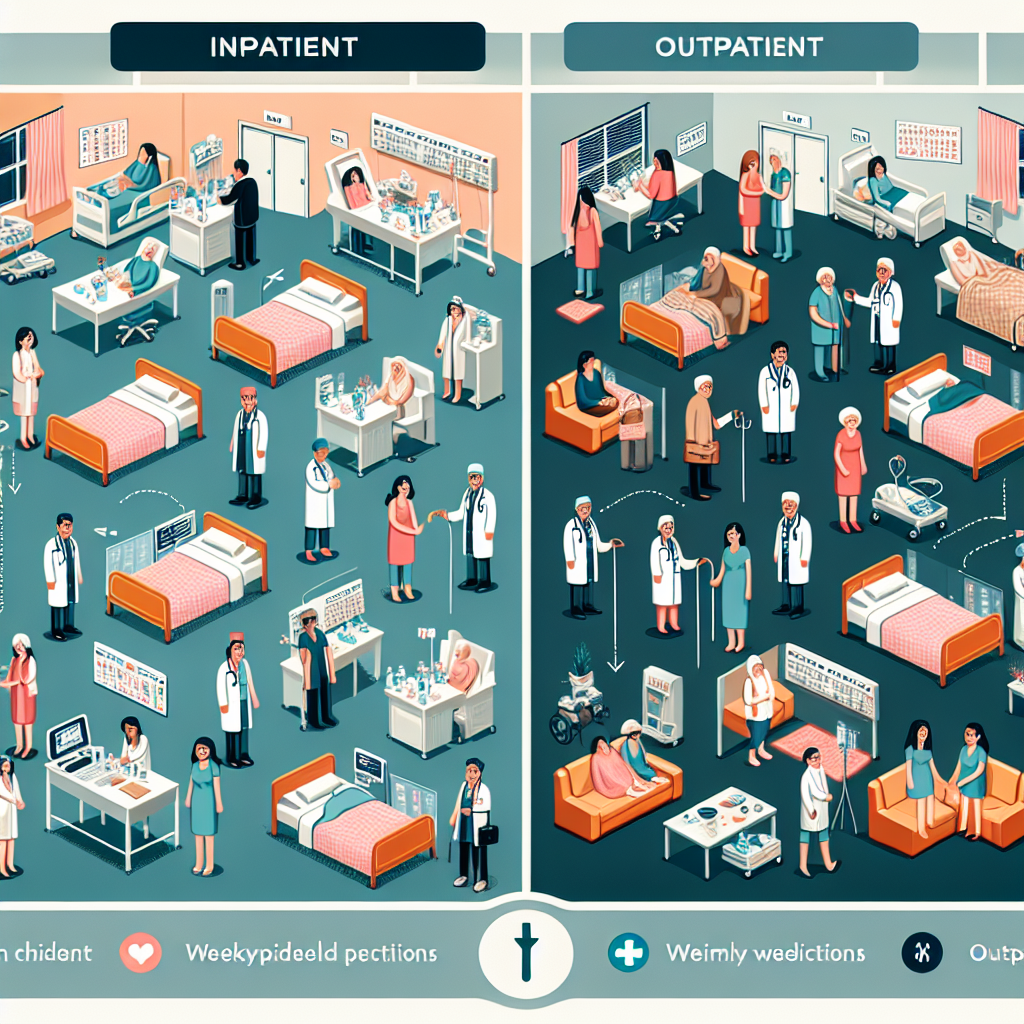-
Table of Contents
“Find the Right Guide to Your Recovery Journey: Choose the Best Therapist for Cocaine Rehab.”
Introduction
Choosing the right therapist in cocaine rehab is a critical step towards successful recovery. The process involves evaluating various factors such as the therapist’s qualifications, experience, and approach to treatment. It’s essential to find a therapist who specializes in addiction and has a deep understanding of the complexities associated with cocaine dependency. Additionally, considering the therapist’s communication style, empathy, and ability to build a trusting relationship can significantly impact the effectiveness of the therapy. Personalized care, evidence-based practices, and a supportive therapeutic environment are key elements to look for when selecting a therapist to ensure a comprehensive and effective rehabilitation journey.
Key Factors To Consider When Choosing A Therapist For Cocaine Rehab
Choosing the right therapist for cocaine rehab is a critical step in the journey toward recovery. The process can be daunting, but understanding key factors can make it more manageable and ultimately more successful. One of the first considerations is the therapist’s qualifications and experience. It is essential to ensure that the therapist is licensed and has specialized training in addiction treatment. Experience with cocaine addiction specifically can be particularly beneficial, as it means the therapist is familiar with the unique challenges and nuances associated with this substance.
Equally important is the therapeutic approach employed by the therapist. Different therapists use different methods, such as cognitive-behavioral therapy (CBT), motivational interviewing, or contingency management. Each of these approaches has its strengths, and the best choice often depends on the individual’s specific needs and preferences. For instance, CBT is highly effective in helping individuals recognize and change negative thought patterns, while motivational interviewing can be particularly useful for those who are ambivalent about quitting cocaine.
Another crucial factor is the therapist’s ability to build a strong therapeutic alliance. This relationship is the foundation of effective therapy and is characterized by trust, empathy, and mutual respect. A therapist who can create a safe and supportive environment will enable the individual to open up about their struggles and work through their issues more effectively. It is often said that the quality of the therapeutic relationship is one of the best predictors of successful outcomes in therapy.
In addition to these factors, it is also important to consider the therapist’s availability and accessibility. Consistency is key in addiction treatment, and having regular, reliable sessions can make a significant difference in the recovery process. Therefore, it is beneficial to choose a therapist who can accommodate your schedule and is easily reachable in times of crisis or when additional support is needed.
Moreover, the therapist’s approach to family involvement can be a significant consideration. Addiction often affects not just the individual but also their loved ones. Therapists who incorporate family therapy or offer support to family members can help repair relationships and build a stronger support system, which is crucial for long-term recovery.
Financial considerations also play a role in choosing a therapist. It is important to understand the costs involved and whether they are covered by insurance. Some therapists offer sliding scale fees based on income, which can make therapy more accessible. It is worth exploring all available options to find a solution that fits within your budget.
Lastly, personal comfort and gut feeling should not be underestimated. The process of recovery is deeply personal, and it is vital to feel comfortable and at ease with your therapist. Trust your instincts when meeting potential therapists; if something doesn’t feel right, it’s okay to keep looking until you find someone who feels like the right fit.
In conclusion, choosing a therapist for cocaine rehab involves considering a combination of qualifications, therapeutic approach, the ability to build a strong therapeutic alliance, availability, family involvement, financial considerations, and personal comfort. By taking the time to carefully evaluate these factors, you can find a therapist who will provide the support and guidance needed to navigate the path to recovery. Remember, the right therapist can make a profound difference in your journey, offering not just professional expertise but also hope and inspiration for a brighter, healthier future.
How To Find The Right Therapist For Effective Cocaine Rehabilitation
Finding the right therapist for effective cocaine rehabilitation is a crucial step in the journey toward recovery. The process can be daunting, but with the right guidance and understanding, it becomes manageable and even empowering. The first step in this journey is recognizing the importance of a therapist who specializes in addiction treatment. Such professionals possess the expertise and experience necessary to address the unique challenges associated with cocaine addiction. They are well-versed in the latest therapeutic techniques and can offer personalized treatment plans tailored to individual needs.
As you begin your search, it is essential to consider the therapist’s qualifications and credentials. Look for licensed professionals who have undergone rigorous training in addiction therapy. Certifications from reputable organizations, such as the American Society of Addiction Medicine (ASAM) or the National Association for Alcoholism and Drug Abuse Counselors (NAADAC), can be indicators of a therapist’s commitment to their field. Additionally, therapists who engage in continuous education and stay updated with the latest research are more likely to provide effective treatment.
Another critical factor to consider is the therapist’s approach to treatment. Different therapists employ various methodologies, such as cognitive-behavioral therapy (CBT), motivational interviewing, or contingency management. It is beneficial to research these approaches and determine which resonates most with you. For instance, CBT focuses on identifying and changing negative thought patterns, while motivational interviewing aims to enhance an individual’s motivation to change. Understanding these methods can help you choose a therapist whose approach aligns with your personal preferences and needs.
Moreover, the therapeutic relationship plays a significant role in the success of rehabilitation. A strong, trusting relationship between you and your therapist can foster a safe and supportive environment, essential for effective treatment. During initial consultations, pay attention to how comfortable you feel with the therapist. Do they listen attentively? Do they show empathy and understanding? These qualities are vital as they can significantly impact your willingness to open up and engage in the therapeutic process.
In addition to individual therapy, consider therapists who offer or recommend group therapy sessions. Group therapy can provide a sense of community and shared experience, which can be incredibly beneficial during recovery. It allows individuals to connect with others who are facing similar challenges, offering mutual support and encouragement. A therapist who recognizes the value of both individual and group therapy can provide a more comprehensive treatment plan.
Furthermore, it is essential to consider the practical aspects of therapy, such as location, availability, and cost. Finding a therapist who is conveniently located and has flexible scheduling options can reduce barriers to consistent attendance. Additionally, understanding the financial aspect of therapy, including insurance coverage and payment plans, can help you make informed decisions without added stress.
Lastly, do not hesitate to seek recommendations and reviews. Personal referrals from friends, family, or support groups can provide valuable insights into a therapist’s effectiveness. Online reviews and testimonials can also offer a broader perspective on the experiences of others.
In conclusion, choosing the right therapist for cocaine rehabilitation involves careful consideration of qualifications, therapeutic approaches, the therapeutic relationship, and practical logistics. By taking the time to research and reflect on these factors, you can find a therapist who not only meets your needs but also inspires and supports you on your path to recovery. Remember, the right therapist can make a significant difference in your journey, providing the guidance and encouragement needed to overcome addiction and reclaim your life.
Q&A
1. **Question:** What qualifications should you look for in a therapist for cocaine rehab?
**Answer:** Look for therapists who are licensed and have specialized training in addiction treatment, such as certifications in substance abuse counseling or a background in clinical psychology with a focus on addiction.
2. **Question:** Why is it important to consider the therapeutic approach of a therapist in cocaine rehab?
**Answer:** Different therapeutic approaches, such as Cognitive Behavioral Therapy (CBT) or Motivational Interviewing (MI), can be more effective for different individuals. It’s important to choose a therapist whose approach aligns with the patient’s needs and preferences for better outcomes.
Conclusion
Choosing the right therapist in cocaine rehab is crucial for effective recovery. It involves considering the therapist’s qualifications, experience with addiction treatment, therapeutic approach, and compatibility with the patient’s needs and personality. A well-matched therapist can significantly enhance the rehabilitation process, providing tailored support and strategies to overcome addiction and maintain long-term sobriety.



